Today, October 25, 2025, the Ijesa nation, from all walks of life, unites with the Asiwaju Dr Lington Olayinka Fasuyi to celebrate and honour the remarkable life at 70 of a beloved husband, father, esteemed businessman, and friend of the masses. Celebrating Asiwaju Fasuyi at 70 offers us the opportunity, as Ijesas home and abroad, to celebrate and appreciate his ‘exceptional impact on the rebirth and modernisation of Ijesaland through his visionary leadership,’ bearing in mind how ‘colonial capitalism eroded the traditional spirit of communalism that once bound the Yoruba people together.’Asiwaju Fasuyi at 70 offers us, especially the Ijesas’ younger generation, to decolonise our thinking and awaken our traditional spirit of communalism towards a new Ijesaland with a total sense of responsibility and unity.
Asiwaju Fasuyi, driven by courage and a dream, though humble, is deeply committed to living a life of shared purpose and prosperity as a model of the nucleus of the Osomaalo of old and as a pillar of “Ijesaland’s miracle of unity.” At Asiwaju Fasuyi’s 70th Birthday Public Lecture held in Ilesa on Wednesday, October 22, 2025, Dr Yemi Farounbi, a former Nigerian Ambassador to the Philippines, aptly identified individualism as a major obstacle to Yorubaland. The lecture’s theme was “Celebrating Ijesa Development Plan (IDP): A Model for Community Growth and Self-Reliance.” Dr Farounbi described the development in ‘Ijesaland as a “miracle” and a shining example of communal unity and purposeful leadership in Yorubaland.” ‘Ijesaland miracle of unity’ is not only transforming Ijesaland into a cohesive unit, stronger and more effective than the sum of its parts but also creating a strong bond in Ijesaland. The power and miracle of unity shape the ongoing transformation in Ijesaland through wisdom, love, strength, faith, imagination, order, understanding, will, power, zeal, release, and the eagerness for an abundant life among the people. ‘Ijesaland’s miracle of unity’ is about harmony and shared purpose (Ps 133:1, Jn 17:21). Chief Akinwande Akinola, a business mogul and Sawe of Ilesa, aptly described Asiwaju Fasuyi as a strategic genius, a magnificent and tenacious performer whose personal brand is his reputation. He markets this advantage to excel where others do not dare to tread.’
The focus of this tribute is to give thanks to God for the life of Asiwaju Fasuyi and to urge the need to make his selfless legacy an abiding vanguard of development and tradition in the present and future. The concept of Osoomaalo as ‘a springboard for Ijesaland’s development, progress, and transformation’ must continue to rekindle Ijesa’s home-brewed trade and commerce ingenuity, creativity and conceptual contribution to business and enterprise.’ Osomaalo’s foundational framework remains a ‘brighter rewarding future for Ijesaland.’
As a model of the nucleus of the Osomaalo of old and guided by his personal ethics, integrity, tenacity, and compassion, fashionista Asiwaju Fasuyi continues to transform challenges in Ijesaland into stepping stones of success and the development of a new Ijesaland. In his commitment to the unity and prosperity of Ijesaland, Asiwaju Fasuyi, a mobiliser, philanthropist, workaholic, and paragon of selfless service, serves as a bridge between culture and communities. As the convener of the first-ever Pan-Ijesa Traditional Rulers Unity and Peace Meeting on March 19, 2019, at Ifewara and the follow-up – the Ijebu-Jesa Unity, Peace, and Development Summit on November 6, 2019, Asiwaju Fasuyi’s legacy of peace and purpose remains the bedrock of the ‘miracle’ of the new Ijesaland development and unity.
Asiwaju Fasuyi invented the concept of a world-based development initiative, a game changer that the Federal Government want to replicate as the ‘Renewed Hope Ward Development Programme’ in the 8,809 wards in Nigeria.’ According to Asiwaju Fasuyi, since 2024, ‘the body, Ijesa Community Development Assembly, has been advocating and sensitising the communities to accept a community-based development approach. The initiative is good for Nigeria. We at Ijesa have evolved this idea.’ With the support of his wife, Yeye Asiwaju Dr Olubisi, Asiwaju Fasuyi’s devotion to God is the cornerstone of their lives.
Ijesas are a distinct people known for their discerning nature and exceptional brilliance, and a mission, evangelism, and spirituality characterise them. Ijesaland is a place of rich cultural history in Yorubaland, with values and traditions highly cherished worldwide. Ijesa is a dialect used to identify the unified people known as the Ijesas, who occupy six local government areas of Osun State: Ilesa West, Ilesa East, Atakumosa West, Atakumosa East, Obokun, and Oriade. Ijesas are not without a unique identity that defines who we are. Our language, our look, customs, trade, religion, and function points to our uniqueness, not just as a sub-ethnic nationality group in Yorubaland. Ijesas are a great socio-economic and political group known as the ‘mastermind behind Osomaalo, a pioneering business phenomenon in Africa.’ Beyond and counter to shylock’s shrewdness in business, the vision of the Osomaalo is about the doggedness and resolute determination of the Ijesa people to go headlong to succeed and in the transformation of Ijesaland against all odds. As Asiwaju Fasuyi said, to be an Osomaalo is to be taught to be ‘streetwise.’
Ilesa, the land of merchants, is the traditional capital of the Ijesa nation, strategically positioned in the heart of Ijesaland, Southwest, Nigeria. Ilesa earned the nickname’ New York’ of the Southwest, reflecting its economic and cultural prowess during the mid-20th century. Ilesa in history is the capital of the first Local Council in Nigeria (Ijesa/Ekiti parapo Council), named by the British Colonial Administrator on June 21, 1900, comprising the present-day Ondo and Ekiti States of Nigeria. In 1915, the Council was abolished and ‘Ijesa lost her influence in the colonial administrative arrangement.’
The meaning of Ilesa counters the abusive reference to ‘Ije awon Orisa’ (food for the gods) by Rev. Samuel Johnson in his controversial book, History of the Yorubas (1921). The name, Ilesa, means Ile ti a sa (a homeland we choose). Peel, J.D.Y. (1983) aptly described an Osomaalo as one who was very determined to succeed and says to himself, “I will squat down until I am paid.” According to him, “Osomaalo trade is an activity for which Ijesas were celebrated virtually and exclusively so”, throughout and beyond Yorubaland. Papa Dr Lawrence Omole explained that beyond ‘a term or form of abuse to characterise the aggressive Ijesa textile traders, an Osomaalo, Osomaalo was tied to the process of debt collection, it means “I will not sit until I have collected my money, showing an inflexible determination to succeed in the face of all odds” (Omole, 1991, p. 13). Osomaalo was a means to promote legitimate trade, which requires skills and energy.
Prince Adeoye Agunlejika explained that beyond a traditional debt recovery system, ‘the Osomaalo had a vision earlier than their contemporaries in Yorubaland and made education their priority in establishing the great Ilesa Grammar School that has produced several great Nigerians.’ The Osomaalo vision and trade continued to be dominated by agile, committed Ijesa entrepreneurs like Asiwaju Olayinka Fasuyi, taking their destinies into their own hands and determined to create a niche for themselves through commerce and trade for the development of Ijesaland. The Osomaalo, through the Egbe Atunluse, embarked on the development of Ijesaland. By 1934, the Egbe Atunluse built the Obokungbusi Townhall and established the great Ilesa Grammar School, and by the 1940s, added the Obokun High School to their progressive and developmental strides. The Osomaalo has been the vanguard of development in Ijesaland for ages. They have been the sponsor of the Pan-Ijesa, Iwude festival for several years.
It is on record that, ‘the Osomaalo tradition ignited a wave of progress and development that got to its peak in the late 1970’s and early 1980’s that saw the establishment of the International Breweries Plc, M. A. Adediran Wire and Steel Industries (ASWIL), Ogbedu Plastics, the Agro Allied Division of I.B Plc, and other Industrial concerns showing interest in establishing their business outfits in Ijesaland which made the socio-economic life of Ijesaland conducive, encouraging and suitable for government patronage which for a very long time was not in existence.’ The Oyo state government, under the leadership of Major General David Madayese Jemibewon (rtd), established the Oyo, formerly Osun state College of Education, now University of Ilesa, School of Health Technology and the Esa Odo Water Dam in the late 1970s.’ The impactful trend of the Osomaalo of Old geared towards community progress and development is not only waning but ‘in aberrance with today’s self-assertiveness, which has been inimical to societal goals and aspirations of the strategic objectives of the Osomaalo.’ Celebrating Asiwaju Oluyinka Fasuyi’s 70th birthday is an awakening call to Ijesas to ‘reconnect herself with the vision of the Osomaalo of old to transform Ijesaland to a modern industrialised hub in Yorubaland with an optimal socio-economic opportunity derivable.’
The historical city of Ilesa is not only rich in human capital and natural resources, ‘Ijesaland has the largest deposit of gold in Nigeria, which can be found in Igun, Itagunmodi, Odo Ijesa, Feldspar at Erin Ijesa and Igangan, Marble at Esa Oke, Ijeda and Iloko Ijesa, Tin Ore at Imesi Ile, Kaolin at Iperindo, Tak at Ilesa and Iperindo, and Mica at Ilesa and Iperindo.’ Ilesa is noted for miracles, signs, and wonders beyond human comprehension. Ilesa, the Ijesa Obokun royal capital city, had the seat of the Owa Obokun Adimula. History records that, ‘on the night of July 10 into the early hours of July 11, 1930, a remarkable miracle/event occurred at the branch of the Faith Tabernacle Church located at Oke Ooye Street in Ilesha, Nigeria. Apostle Joseph Ayo Babalola, a passionate 26-year-old evangelist known for his fervent faith and deep commitment to God, was used as an instrument of divine intervention to bring a ten-year-old boy named John Obi Ogundipe back to life.’ The flames of Oke Ooye’s miracle and spiritual awakening not only positively impacted the development of Ijesaland but also marked a pivotal moment in Nigerian Pentecostal history, sparking widespread revival within and across Nigeria. The 1930 Oke Ooye miracle remains a breakthrough to silence every spiritual and physical opposition to the unity and development of Ijesaland.
Among the enduring legacies of the immediate past Owa Obokun of Ijesaland, Oba Dr Gabriel Adekunle Aromolaran, was the appointment of Chief Yinka Fasuyi as the Asiwaju of Ilesa in 2016, and his elevation, based on his impressive performance, four years later to the Asiwaju of Ijesaland. According to Comrade Aluko Ayoola, Chief Fasuyi’s dedication to advancing Ijesaland earned him historic recognition. On October 22, 2016, the late Owa Obokun Adimula of Ijesaland, His Imperial Majesty Oba (Dr.) Gabriel Adekunle Aromolaran II, after 70 years of the title’s vacancy, honoured him as the Asiwaju of Ilesa, an appointment that rekindled a great cultural legacy.’ This remarkable honour and elevation, four years after, as the Asiwaju of Ijesaland, reaffirmed Asiwaju Fasuyi’s position as a symbol of unity, progress, and leadership for all Ijesa sons and daughters at home and in the diaspora.’ Asiwaju Fasuyi remains a gift to Ijesaland, a light to humanity, a model of the nucleus of the Osomaalo of old and a pillar, ‘Ijesaland’s miracle of unity.’
Grounded in Christian faith and hard work, Asiwaju Fasuyi grew into one of Nigeria’s most admired business visionaries —a man whose success is matched only by his humanity. Asiwaju lives by the principle that ‘money can make friends, but it can also make enemies; let your character, not your wealth, speak for you.’ Many find in Asiwaju Fasuyi a mentor and motivator who saw potential where others see limitations. He creates jobs and supports the needy.
Asiwaju Fasuyi is a countercultural example of the world’s moneybags and businesspeople. The world moneybags of today are in the footsteps of Judas Iscariot. Many of them are thieves and looters, having charge of the public money and using it to help themselves (Jn 12:6). Asiwaju Fasuyi, a treasurer of God’s itinerant kingdom, Patron, Holy Trinity, Omofe, Ilesa, exercises and lives a lifestyle shaped by the fear of God as the source of his wealth and used the wealth for the common good of the people of Ijesaland. Asiwaju Fasuyi is a model of humility and service to God, people and community. I remember a particular and unforgettable testimony about Asiwaju Fasuyi and his wife, Dr Olubisi Fasuyi. In 2024, during the reception of the transition of Oba Aromolaran, Asiwaju Fasuyi was not in a hurry at all; he mixed with everyone, sharing our ‘common meal’, the Ijesa best pounded yam.
Born on October 25, 1955, in Ilesa, Asiwaju Yinka Fasuyi (the 16th of the 23 children of his father, and the third child, but the first son of his mother’s six children) is the son of Chief Jacob Olowookere Fasuyi and Mrs Felicia Sijuwola Fasuyi. He attended Otapete Methodist Primary School, Ilesa (1962–1968) and Ilesa Grammar School (1969–1973), before earning a bachelor’s degree in economics from the University of Ibadan (1982/83). He went on to obtain: a Master’s in Industrial & Labour Relations (1986, University of Ibadan); an MBA (1989, Obafemi Awolowo University, Ile-Ife); and a Master’s in Information Science (1994, University of Ibadan).
Asiwaju Fasuyi, a kingdom treasurer and steward, did not betray God for the silver of this world. In contrast to today’s world moneybags who ‘loved money to such an extent that they have sold their consciences to gain wealth, sold the Truth for money believing that they would prosper in business better by advocating error, sold the community for money, and have been willing to preach what they did not believe for the hire of money and the approval of men, sold their nation’s interests for money, bartering their patriotism,’ Asiwaju Fasuyi’s legacies warns us against the insidious influence of the love of money. Asiwaju Fasuyi reminds us that wealth and money represent toil and labour and should be valued for the good they can do, not made into idols that alienate our hearts from God. Asiwaju Fasuyi grew up under the tutelage of his parents, both of whom were in business. He was taught to be streetwise, that is, to be an Osomaalo.
Asiwaju Fasuyi’s career paths developed from corporate to consultancy excellence. On the completion of his National Youth Service Corps, a national assignment, Asiwaju Fasuyi began his career as a teacher at Queens’ College, Yaba, Lagos (1984–1985) before joining Total Nigeria Plc as a Marketing Executive in 1985.’ In 1992, he resigned to establish his own company, Supreme Management Training & Consultancy Services Ltd, which has since grown into one of Africa’s leading management consulting firms, training thousands of professionals and organisations across the continent. In 2011, Asiwaju Fasuyi founded the Ibadan Business School (IBS), a world-class institution focused on leadership development, governance, and enterprise growth. It is on record that, under Asiwaju Fasuyi’s leadership, the IBS has trained over 200,000 professionals across both public and private sectors; Partnered with The World Bank and top global organisations for executive capacity building; Launched Africa’s first Green Enterprise Initiative, in partnership with GreenPlinth Africa, pioneering efforts toward sustainable education and the establishment of Africa’s first “Green University.”
Asiwaju Fasuyi holds several professional fellowships, including Fellow of the Nigerian Institute of Management (FNIM), Fellow of the Institute of Management Consultants (FIMC), Fellow of the Institute of Information Management (FIIM), and Fellow of the Institute of Training and Development (FITD). Asiwaju Fasuyi continue to facilitate the Asiwaju Yinka Fasuyi Foundation (AYFF) for education and empowerment. The Foundation has paid WAEC fees for countless indigent students, provided scholarships, and supported youth empowerment initiatives across Ijesaland. For Asiwaju Fasuyi, “True wealth is measured by the number of lives you touch positively.” In December 2023, Asiwaju Fasuyi was elected as the 21st Club Chief of the prestigious Silver Knights Club, Ibadan.
The numerous development projects in Ijesaland highlight the impact of the appointment of Asiwaju Fasuyi, exemplifying the innate attributes of his leadership capacity and influence in social and infrastructural development and in engendering unity across Ijesaland. Among the various development and community-led initiatives in Ijesaland are ‘the new Owa’s palace, Ijesaland Geriatric Centre, upgrade of Osun State College of Education to University of Ilesa, and training of many indigent students at Leventis Foundation Agricultural School and Federal School of Science and Technology, now Federal Technical College.’ Dr Farounbi aptly described this development as ‘Ijesaland’s miracle of unity,’ a model not just for Yoruba development but for national renewal.
Asiwaju is a symphony of generosity, leadership and unwavering faith in God. Happy renewing 70th birthday to Asiwaju Fasuyi, whose personal transformation from a teacher and Consultant, has become a model of the nucleus of the Osomaalo of old and a pillar of ‘Ijesaland’s miracle of unity, development and prosperity.

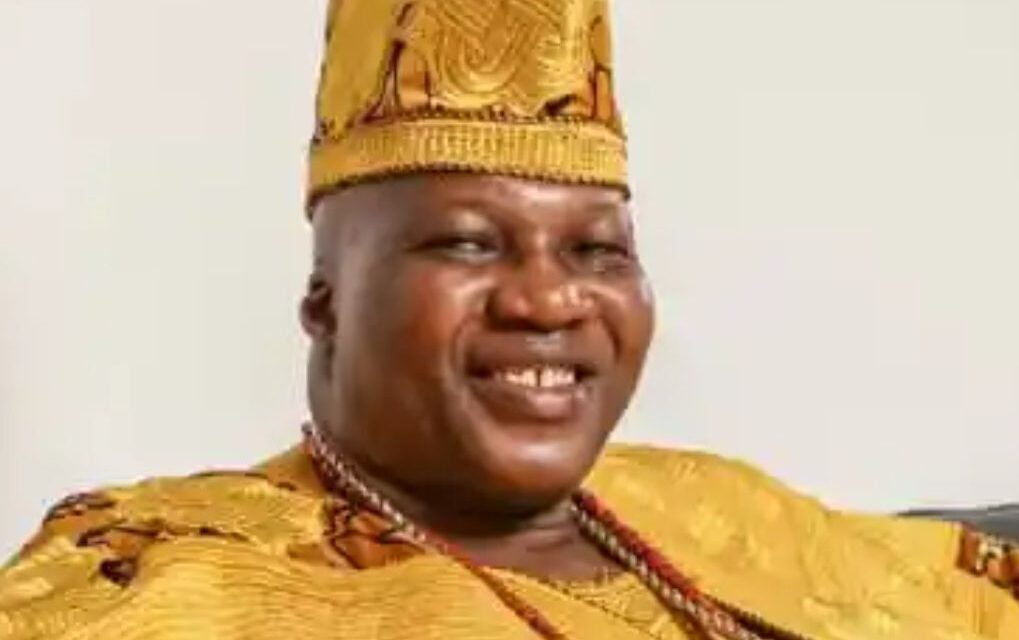
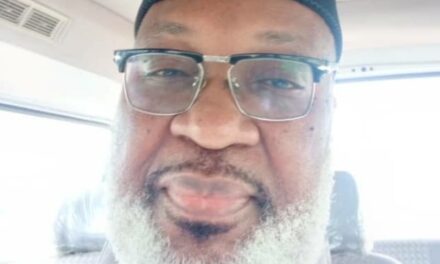
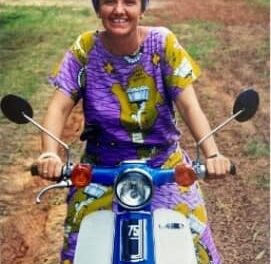
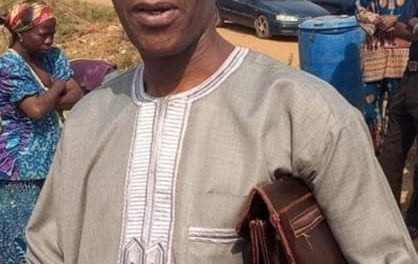
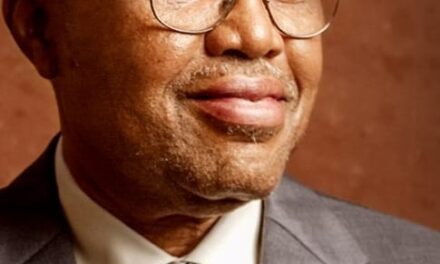
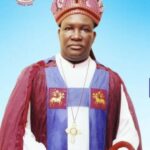
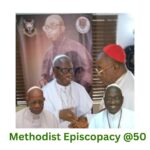
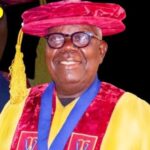

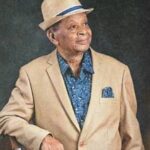
Recent Comments